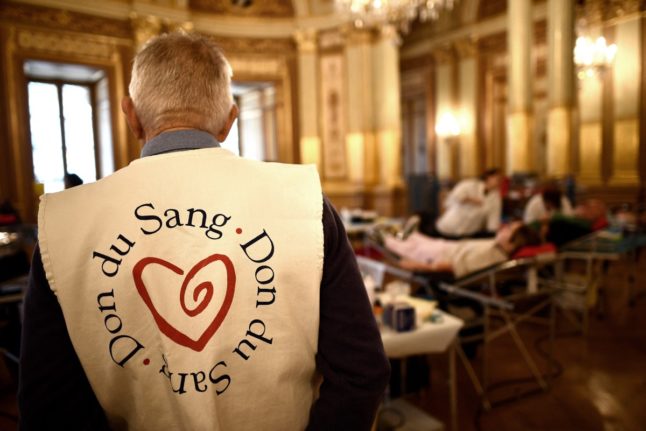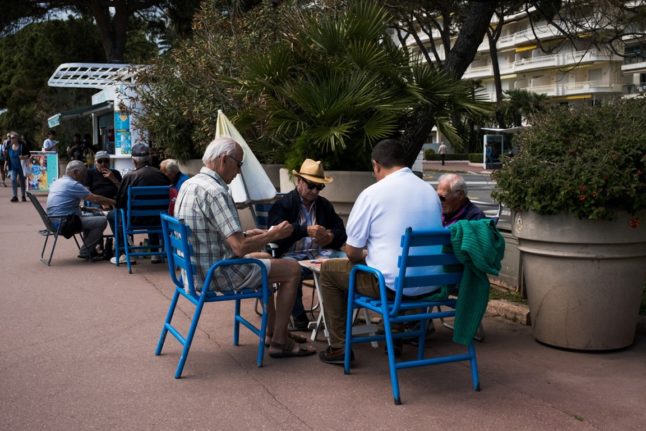Who can do it?
In order to donate blood (don du sang) in France, you must be aged between 18 and 71, and you must meet certain health and medical criteria, including being in good health and weighing at least 50kg.
Most of the rules for donating blood are the same in France as they are in countries like the US and UK, but there are some specifics to be aware of.
For example, you cannot donate blood if you lived in the UK for a cumulative total of at least 1 year between 1980 and 1996, which excludes many Brits from giving blood in France.
READ MORE: Is it true Brits are banned from giving blood in France?
Similarly, you cannot donate blood if you:
- have undergone a transfusion or transplant
- could transmit a disease (bacteria, virus or parasite) through your blood
- could transmit a viral infection through sexual contact
- had a piercing or tattoo in the last four months
- are or were pregnant within the last six months
- had sex with different or new partners in the last four months
- or have taken intravenous drugs
If you are sick with the flu or a cold, you will likely be denied as well (those who had an infection or fever in the last two weeks). People who visited an area with high rates of malaria, who have survived cancer, or who had recent surgical and dental operations will be assessed on a case-by-case basis.
To figure out if you are eligible you can take this quiz (in French).
You cannot be excluded from donating blood based on your sexual orientation – in March 2022 France lifted exclusions on gay men giving blood, saying the rule was no longer necessary and was unfair.
However, you can be excluded based on the health concerns listed above.
How does the process work?
In France, there is a three-step procedure.
First, you will complete a questionnaire assessing your ability to give blood. You will have a short interview with a medical professional who will determine if you are eligible. You have 15 days following the interview to follow-up and inform the medical professionals if there was anything you forgot to share.
You can find a blood donation centre on this interactive map. Click on a centre to make an appointment. Keep in mind you will need to bring ID along.
The amount of time it takes to give blood depends on whether you are donating whole blood, plasma, or platelets (more on this below).
After the donation, you will rest briefly and be given a light snack. If there were any abnormalities with your blood, then you will be contacted once it is analysed.
Can you be paid?
No, you cannot be paid. All types of blood donation are considered to be voluntary, unpaid acts in France – your reward is that post-donation snack, plus the priceless knowledge that you may have saved someone’s life.
Blood vs. plasma vs. platelets
A whole blood donation (don de sang total) collects three essential components: red blood cells, platelets and plasma. However, you can also donate plasma or platelets individually.
The procedures take different amounts of time, and there are also different intervals between donations you should keep in mind.
Whole blood donations are used for blood transfusions and medical research, and the volume taken will depend on your weight and height. These take about eight to 10 minutes for the blood collection, though you should allow for 45 minutes to an hour for the medical interview beforehand, plus rest and snack time afterwards.
Men can give a whole blood donation a maximum of six times a year, while women can give four times a year. There should be at least eight weeks between donations.
Plasma donations (don de plasma) yield two to four more times the plasma taken during a normal whole blood donation – these are usually used for special transfusions. It will take a maximum of one hour for the donation, but you should allow closer to an hour and 30 minutes.
For plasma, both men and women can give a plasma a maximum of 24 times in one year. The interval between donations should be at least two weeks.
Donating platelets (don de plaquettes) helps to treat certain cancers, including leukaemia. This process takes a bit longer – closer to an hour and 30 minutes for the collection, so allow two hours for the whole process.
For platelets, men and women can both give a maximum of 12 times per year. The interval should be four weeks between donations.



 Please whitelist us to continue reading.
Please whitelist us to continue reading.
Member comments